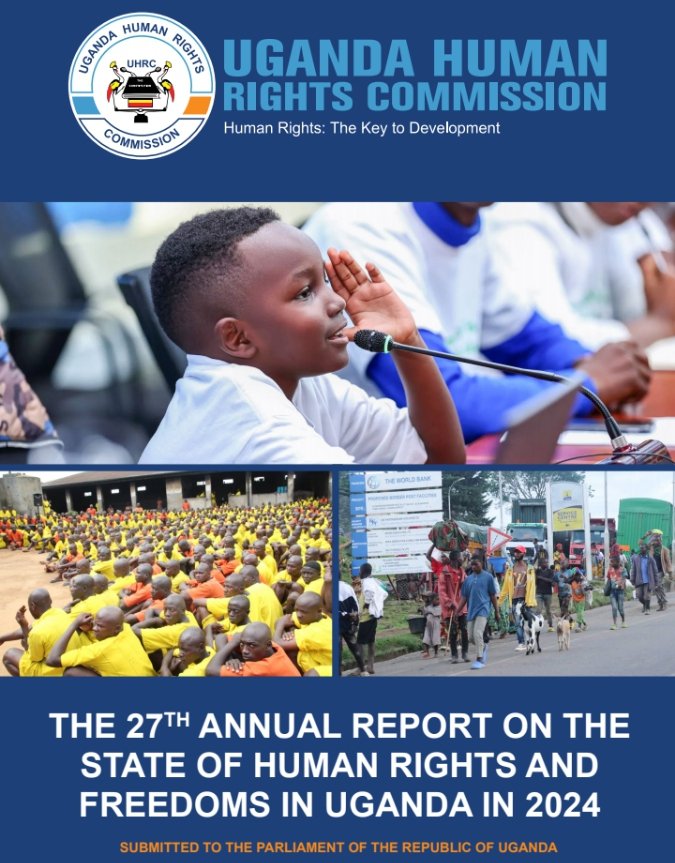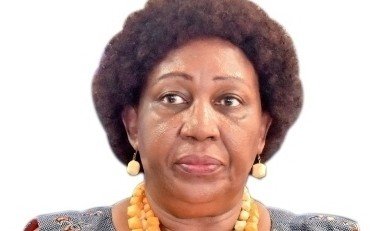Mariam Wangadya
Source: Henry Mulindwa / The Inspector UG
The Uganda Human Rights Commission (UHRC) has raised an alarm, telling President Museveni and his government to slap harsh taxes on alcohol and sports betting.
UHRC believes alcohol and betting are very harmful and that they are jeopardizing Uganda’s ability to attain its National Vision 2040.
According to the Commission headed by Adv. Mariam Wangadya, internationally and in line with the fiscal contract obligations, Ugandan government is obliged to protect it’s citizens against the effects of consumption of harmful commodities such as booze and cigarettes. In addition, government must protect its people against engaging in toxic behavior such as betting or gambling by instituting deterrence mechanisms such as raising the tax rates.

“While the UHRC appreciates the government ‘s efforts to deter consumption of alcohol and cigarettes as well as engagement in betting or gambling by increasing tax rates applicable to such commodities, it notes that the protection accorded is simply inadequate” the Commission’s 27th Annual Report 2024 on the State of Human Rights and Freedoms in Uganda 2024 says.
According to UHRC, the increase of the tax rate on Casinos from 20% to 30% of the total money staked under the Lotteries and Gaming Amendment Act did nothing to deter betting. The commission noted that in the year under review, betting became a money-spinning venture in Uganda with 40-57% youths aged between 17-35 years being heavily involved in gambling work.
“The UHRC is concerned that the gambling/betting is depriving families of the requisite resources to meet basic necessities of life and discourages productivity which is a key enabler to the attainment of Uganda’s socioeconomic transformation” the report said.
The commission also observed that low-rate imposition of excise duty on booze and cigarettes aided massive consumption of these harmful products. The taxes didn’t deter at all consumption as booze intake remained high.
Citing URA’s annual performance report 2023/4, consumption of beer contributed the highest amount of revenue to the country. This, to the commission meant that the beer was very affordable to average Ugandan thanks to low taxes levied on it.
The UHRC beefed up its argument by quoting the WHO statistics for the previous year 2023 which indicated that booze consumption rates in Uganda were exceedingly high with per capita rates standing at 12.21 litres per year. This is in contrast with the African average of 6.3 litres and the global average of 6.18 litres per person per year.
“Additionally, statistics show that 10% of the adult population in Uganda experiences an alcohol use disorder with men significantly more likely to be affected than women. UHRC notes that besides the health consequences of alcohol, its consumption limits productivity and discourages saving, thereby undermining the country’s strategy for the realization of the National Vision 2040” it says.
The commission thus noted that more severe and protective tax rates on such potentially harmful and non-essential commodities will deliver a more energetic, healthy and productive citizenry.
FREEDOM OF EXPRESSION AND ACCESS TO INFORMATION
The Commission also observed that heavy taxes levied on internet barred many people from enjoying the freedom of expression and also access to information as enshrined in the constitution [Article 29]. The commission described internet as the ‘lifeblood’ of the aforementioned fundamental rights. It however, noted that not all segments of society enjoyed this right due to high taxes on internet.
“Internet taxes makes internet less affordable, ultimately affecting the enjoyment of freedom of expression and access to information. According to Inclusive Digital Economy Score card 2021, groups that were most excluded from the digital economy were the elderly [77%], rural communities [73%], PWDs [71%], youth [43%], refugees [71%] and migrants [65%]” the report said, adding that the proportion of household members who used internet was lower for women [5%] compared to men [8%] according to UBOS.
The commission called for reduction of tax rates on internet since it is crucial in promoting digital economy and also observance of freedom expression and access to information.








